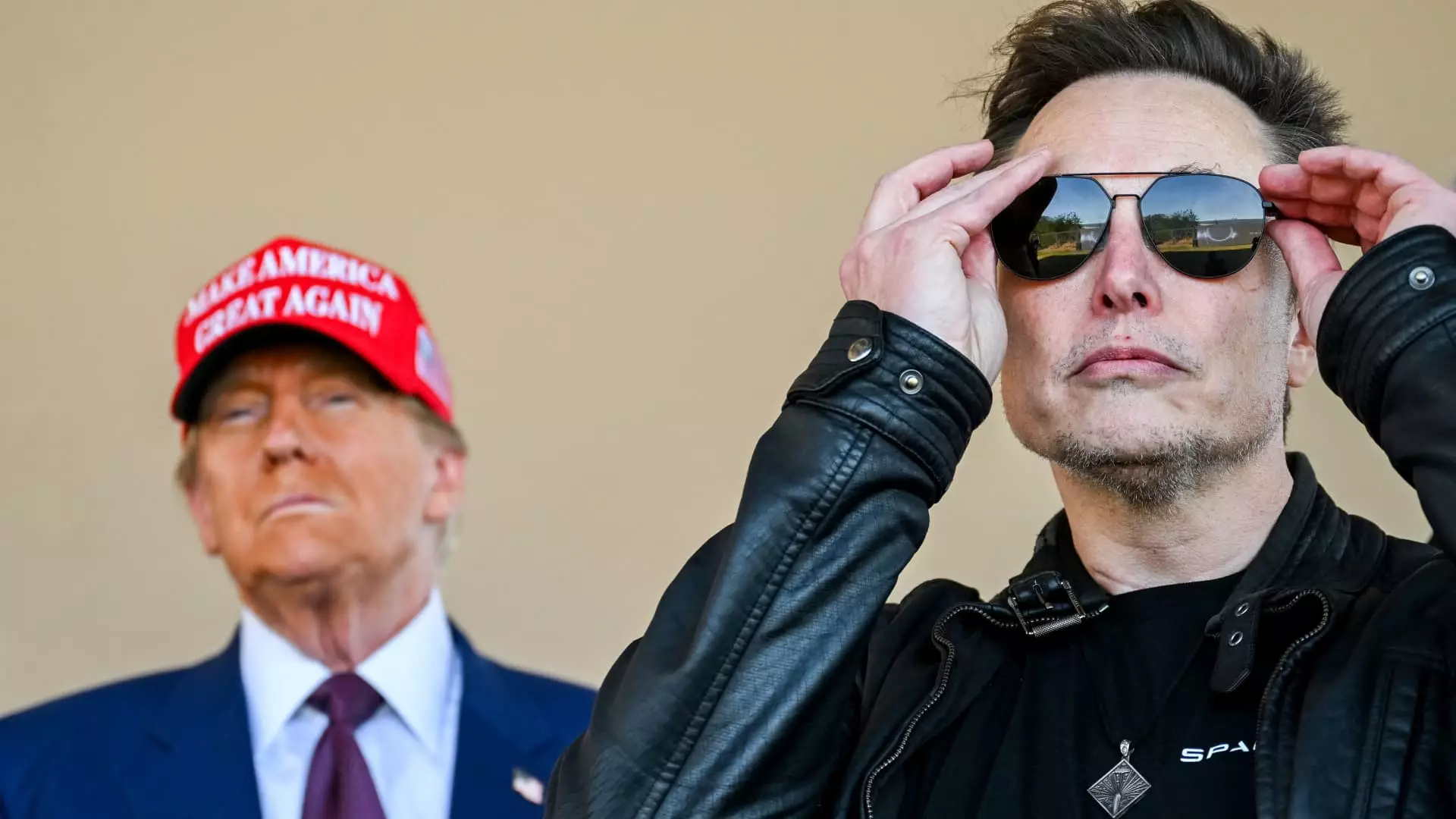The intertwining of corporate power and politics is becoming an increasingly pressing concern in the United States, particularly with the emergence of figures like Elon Musk, who seem to hold substantial sway over governmental affairs. Following a narrow escape from yet another government shutdown, cracks are appearing in the alliance between the Democratic Party and their Republican counterparts, primarily due to allegations of Musk’s growing influence over political decision-making. As the nation stands on the precipice of a new presidential administration with Donald Trump at the helm, the implications of Musk’s potential power could not be more significant.
The recent bipartisan funding bill, consisting of over 1,500 pages crafted by House Speaker Mike Johnson, was effectively thwarted by the combined efforts of Musk and Trump, showcasing how individual interests can undercut the legislative process. In a dramatic turn of events, Musk utilized his massive platform on X (formerly Twitter) to vocally oppose the bill, urging his followers and lawmakers alike to reject the proposed spending. With over 208 million followers, Musk’s influence is undeniable, raising questions about who really steers the political ship in turbulent times.
Critics were swift to label Musk’s actions as overreaching, coining the sardonic term “President Musk.” This criticism reflects deeper concerns among many Democrats, who perceive this instance not as a singular event but as part of a troubling trend where a corporate mogul might bypass traditional democratic processes. Musk’s influence has created a situation where corporate voices can be mistaken for or rival elected officials in terms of political authority. Lawmakers such as Jim McGovern and Rosa DeLauro openly accused their Republican colleagues of succumbing to Musk’s intimidation tactics to protect their own political futures.
Reactions from lawmakers regarding the situation have been mixed, exposing growing fissures within party lines. Some Republicans, like Congressman French Hill, argue that Musk’s criticisms should not be seen as central to the legislative deadlock and emphasize the importance of party unity, given their precarious majority in Congress. However, contrasting views from Democrats depict Musk as a disruptive force, with Senator Elizabeth Warren notably commenting that no one elected Musk to govern federal affairs.
Within such an environment, the credibility of both the legislative process and elected officials is being questioned, leading to debates about transparency and accountability in government spending. Tennessee Senator Bill Hagerty lauded Musk’s capacity to bring hidden information to light through his posts, claiming it prevented potential cover-ups between government agencies and social media platforms. This assertion reveals an interesting duality where Musk’s actions, while potentially beneficial in the context of transparency, simultaneously raise concerns regarding the power a non-elected individual can wield.
Looking to the future, as Trump prepares to formally enter the Oval Office, many speculate about the potential for ongoing instability fostered by Musk’s involvement in politics. The recent episode has been characterized as a precursor to future confrontations, particularly with the expiration of current funding agreements looming in March. Democratic Senator Chris Coons articulated fears that the chaotic negotiation strategies witnessed recently might become the norm, with Musk persistently intervening from the sidelines.
What this entire situation underscores is a paradigm shift in how political power dynamics are being perceived in contemporary American society. Are corporate leaders like Musk emerging as informal power brokers? The implications of this new landscape are profound. The continued intermingling of wealth, social media influence, and politics have the potential to undermine the traditional checks and balances that define American governance.
The intersection of business and politics is thrusting figures like Elon Musk into the limelight as entities of significant influence. As lawmakers grapple with their own roles in a shifting political landscape, the question persists: is America inadvertently stepping toward a new form of governance where corporate leaders possess more clout than elected representatives? The resonance of Musk’s voice in legislative matters cannot be overlooked, posing challenges that both parties must address as they navigate an unpredictable political terrain. The fallout from this convergence of technology, finance, and governance will reverberate across the nation in the years to come, signaling a new era fraught with both opportunity and peril.


Leave a Reply